Physical Address
India
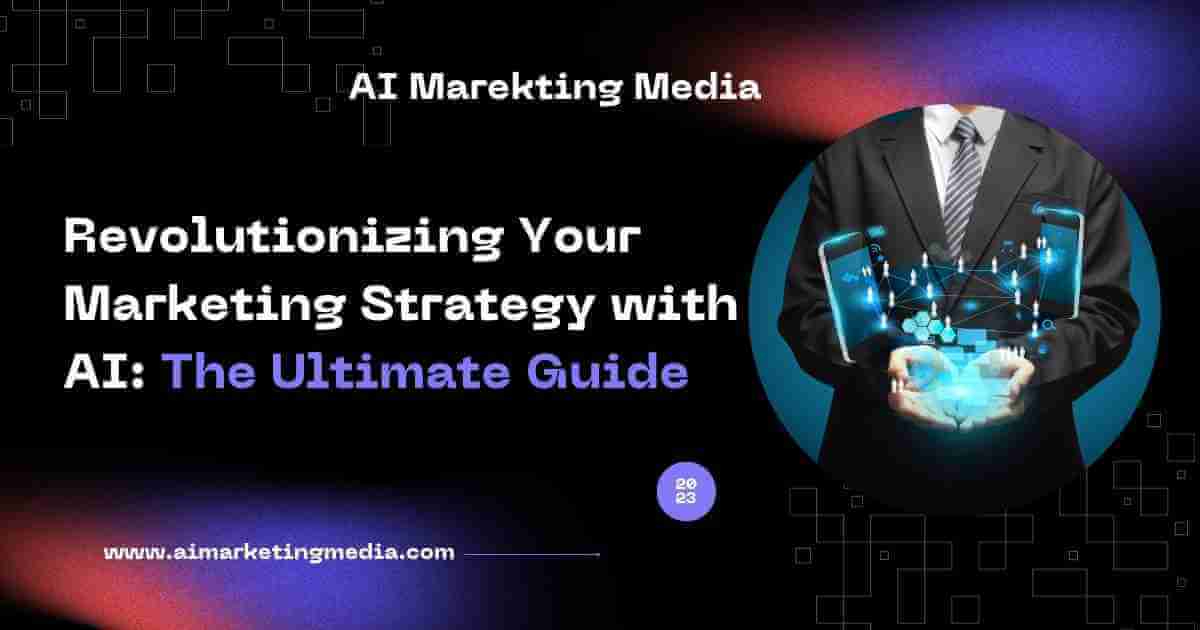
Marketing has evolved with the emergence of Artificial Intelligence (AI) technology. AI marketing enables companies to collect and analyze a vast amount of customer data, and use that data to create more personalized and targeted marketing campaigns. In this article, we will discuss how to design an effective AI marketing strategy that can help your business outrank competitors and drive growth.
Artificial intelligence (AI) marketing is a technique of using AI technologies to improve the effectiveness of marketing campaigns. AI marketing helps businesses to analyze customer data and create personalized campaigns that appeal to customers’ preferences and interests.
There are several technologies used in AI marketing such as natural language processing (NLP), machine learning (ML), and predictive analytics. NLP is used to analyze and understand customer data, while ML is used to train algorithms that can predict customer behavior. Predictive analytics is used to identify patterns and trends in customer data that can be used to enhance marketing campaigns.
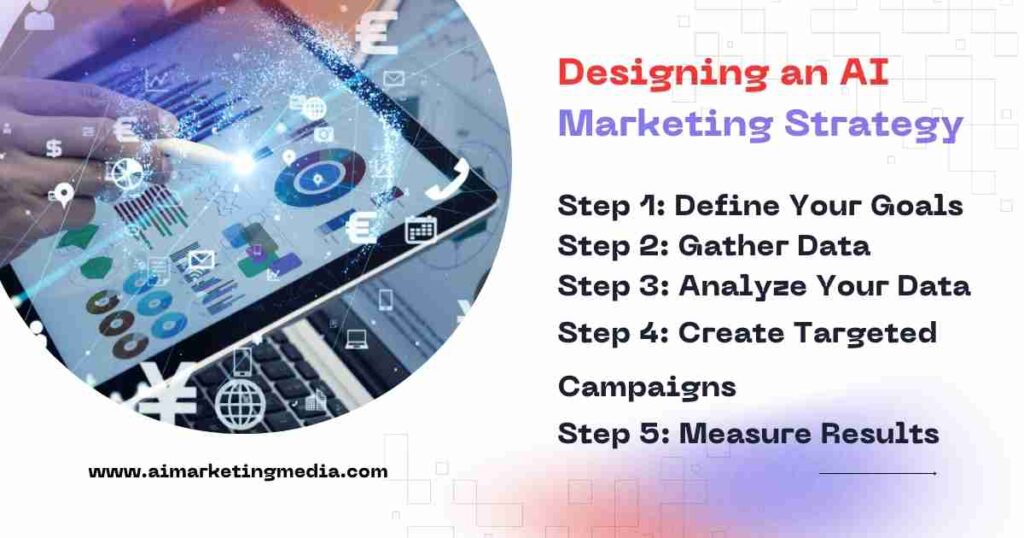
Designing an AI marketing strategy is a complex process that involves several key steps:
The first step is to identify your business’s marketing goals. What do your marketing strategies want to accomplish? Do you want to boost brand recognition, get more leads, or enhance sales? Setting goals enables you to develop a targeted AI marketing approach that concentrates on reaching your goals.
Real-Time Example: If your business goal is to generate more leads, your AI marketing strategy would be designed to attract and capture leads through personalized campaigns and targeted ads.
The next step is to collect data on your target audience. This data can include demographic information, behavioral data, and transactional data. The more data you collect, the more accurately you can create customer profiles and target your marketing campaigns.
Real-Time Example: For instance, if your target audience is young professionals, you might collect data on their job titles, interests, hobbies, and online behavior to create an effective marketing campaign.
Analysing your data is crucial after you have gathered it. Here is where AI technology is useful. You can find patterns and trends in your data that may be utilised to develop more successful marketing campaigns by utilising NLP, ML, and predictive analytics. This analysis will help you understand your customers’ behavior, preferences, and needs.
Real-Time Example: If your data analysis reveals that your target audience is interested in sustainability, you can create a marketing campaign that highlights your eco-friendly practices and products.
With your data analyzed, it’s time to create targeted marketing campaigns. Using the insights gained from your data analysis, you can create personalized marketing messages that resonate with your target audience. This will help you drive engagement and increase conversions.
Real-Time Example: You can use targeted ads on social media platforms to reach your target audience based on their interests, online behavior, and demographics.
The final step in designing an AI marketing strategy is to measure your results. By tracking key metrics such as click-through rates, conversion rates, and customer engagement, you can determine the effectiveness of your marketing campaigns. This will help you make adjustments and optimize your campaigns for better results.
Real-Time Example: You can use A/B testing to compare different versions of your marketing campaigns to determine which version performs better in terms of engagement and conversion rates.
Also Read:
After exploring the world of AI marketing, we hope that you have a better understanding of how this technology can revolutionize the marketing industry. From personalized recommendations to predictive analytics, AI is changing the game for marketers and providing new opportunities for growth and success.
Of course, it’s not all rainbows and unicorns. Implementing AI marketing strategies requires careful planning and consideration, and it’s important to weigh the benefits against the potential drawbacks.
But hey, we didn’t come this far just to give up now, did we? With the right approach and a little bit of luck, AI marketing can help you reach new heights and take your business to the next level. Who knows, you might even become the next Elon Musk of marketing.
In conclusion, AI marketing is not just a buzzword, it’s a game-changer. As AI continues to evolve and improve, we can expect to see even more exciting developments in the marketing world. So don’t be afraid to jump on the AI bandwagon and see where it can take you. Who knows, you might even teach your AI assistant to write your marketing blogs for you someday.
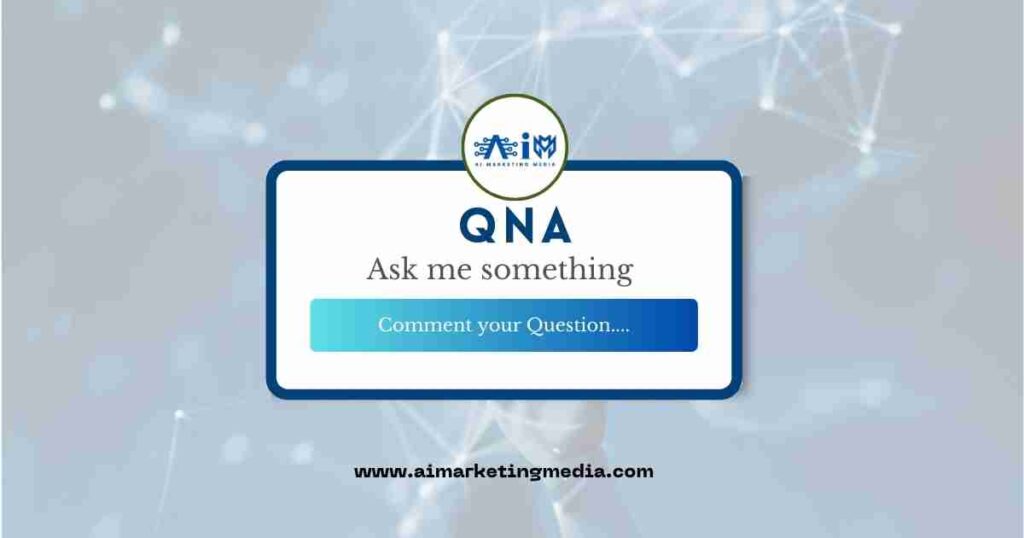
AI marketing has several benefits, including:
Traditional marketing relies on a broad approach that targets a wide audience, while AI marketing uses data to create personalized campaigns that are targeted to specific segments of the audience. AI marketing is more precise and efficient than traditional marketing, and it allows businesses to create more personalized and relevant experiences for their customers.
AI marketing uses various types of data, including:
AI marketing can improve customer engagement by creating personalized messaging and offers that are tailored to the individual customer’s preferences and interests. By analyzing customer data, businesses can gain insights into what their customers like and dislike, and create campaigns that resonate with them.
Yes, AI marketing can be used in any industry that relies on marketing to reach and engage customers. AI marketing is particularly effective in industries with large amounts of customer data, such as e-commerce, retail, and finance. However, any business that wants to create personalized and targeted marketing campaigns can benefit from AI marketing.
Artificial Intelligence (AI) has been a game-changer in the marketing landscape, revolutionizing the way businesses connect with their audience. However, as technology evolves, so do
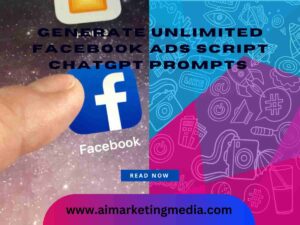
Introduction In today’s digital age, creating compelling Facebook ads is crucial for businesses looking to reach their target audience effectively. However, crafting engaging ad scripts
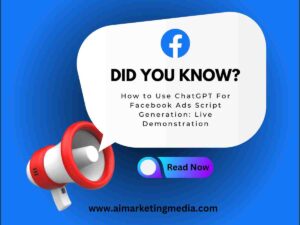
Introduction In today’s digital age, effective advertising plays a crucial role in the success of businesses. With the rise of social media platforms, Facebook Ads
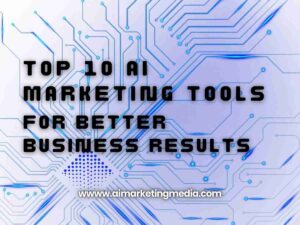
The following article discusses the top 10 AI marketing tools that can significantly enhance business outcomes. By leveraging these powerful tools, businesses can stay ahead
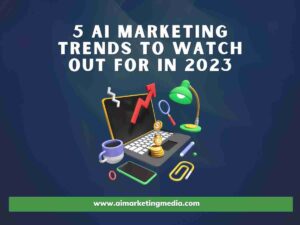
In the ever-evolving world of marketing, staying ahead of the curve is crucial. As we dive into 2023, it’s becoming increasingly clear that artificial intelligence
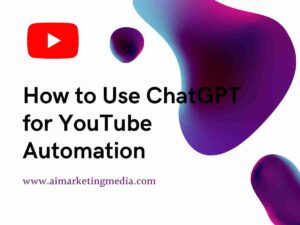
If you’re a content creator on YouTube, you know how important it is to consistently create high-quality videos that engage your audience. However, with so
